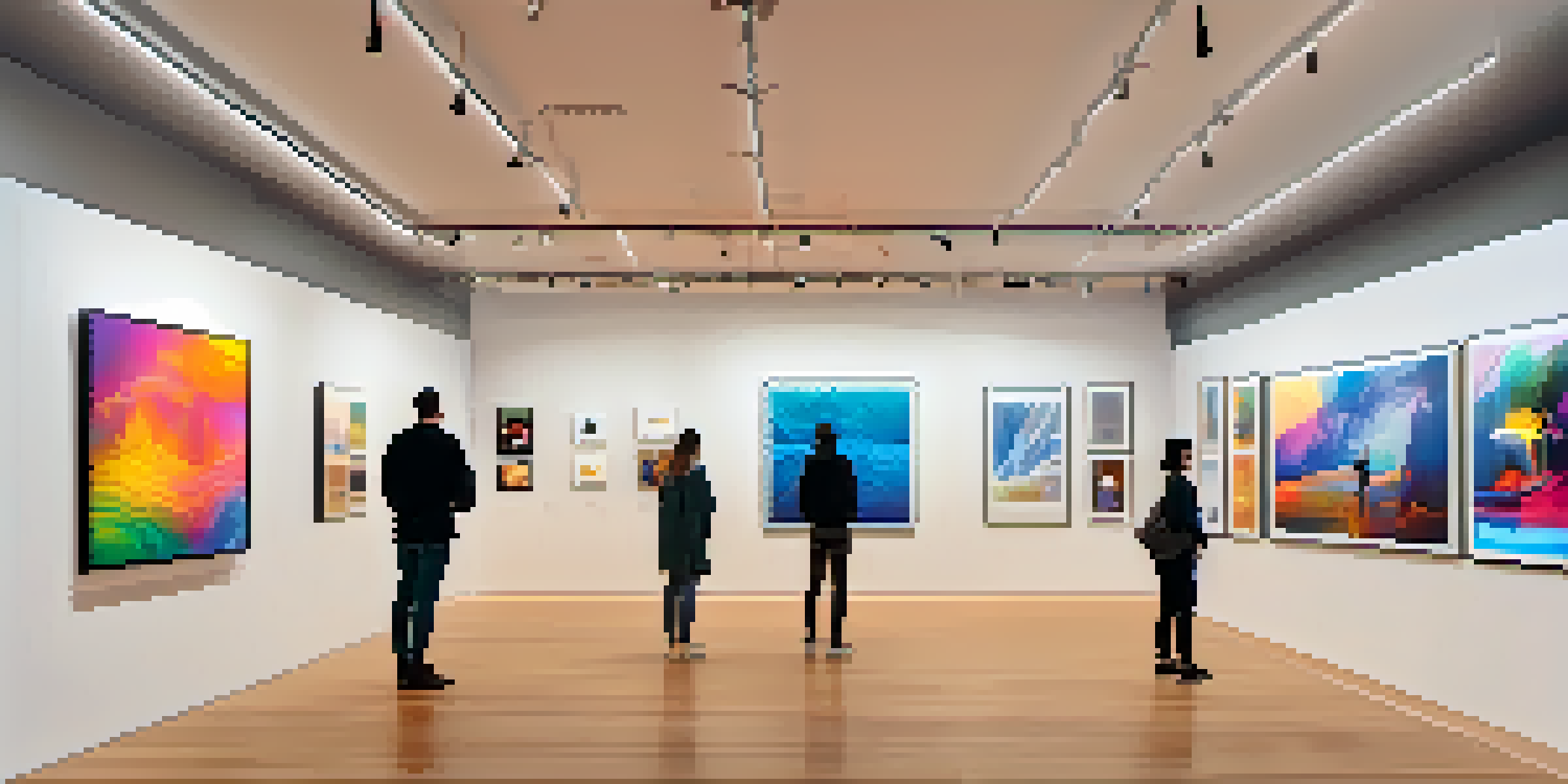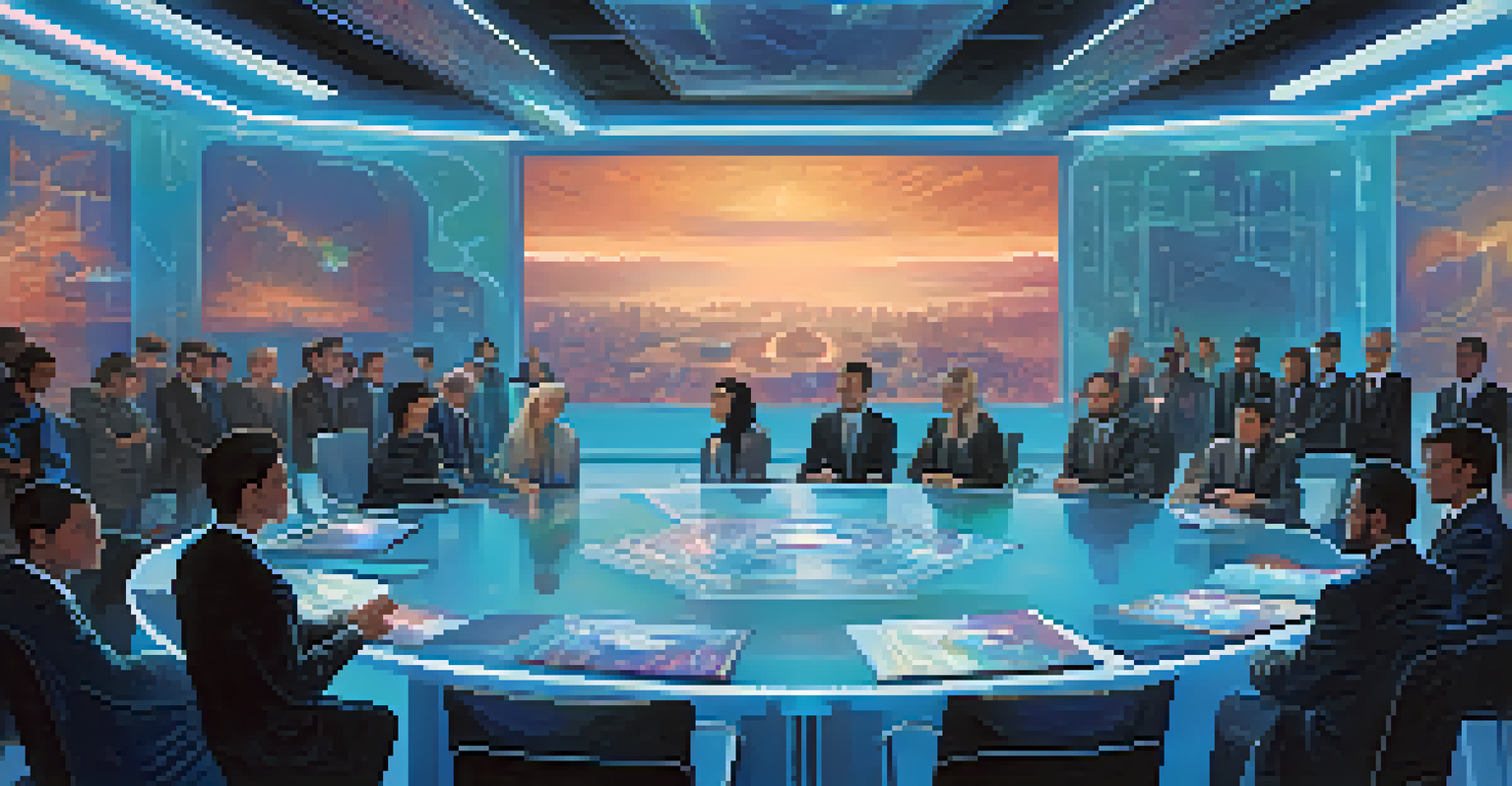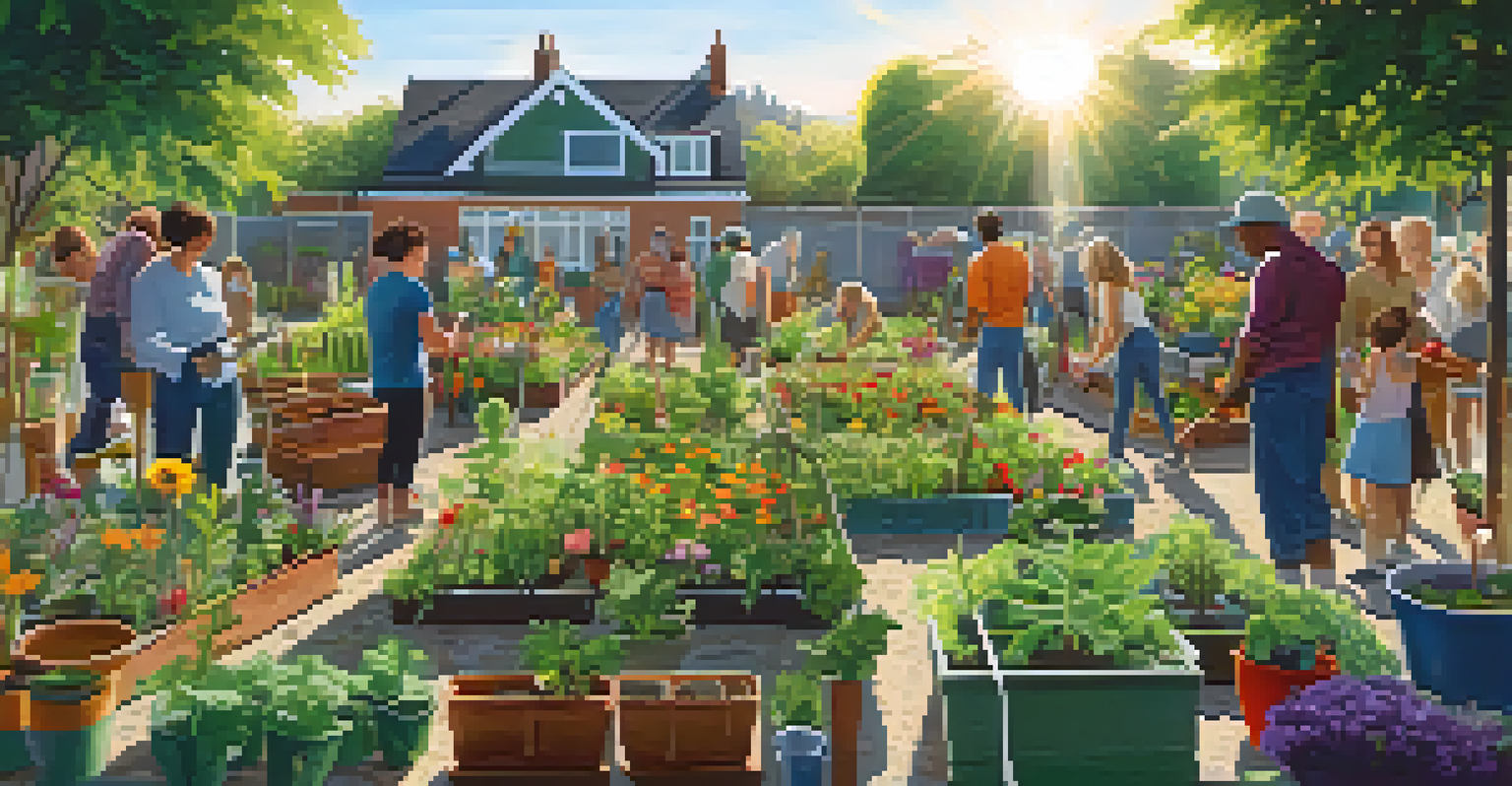The Intersection of NFTs and DAOs: Governance and Ownership

Understanding NFTs: Unique Digital Assets Explained
Non-fungible tokens, or NFTs, are unique digital assets that represent ownership of a specific item or piece of content on the blockchain. Unlike cryptocurrencies like Bitcoin, which are interchangeable, each NFT has distinct information that makes it different from others. This uniqueness allows for a wide range of applications, from digital art to music and even virtual real estate.
The future of the internet is decentralized, and the future of ownership is digital.
Imagine owning a one-of-a-kind piece of art that you can showcase online or sell to collectors. That's the essence of NFTs; they grant ownership of digital items in a way that's verifiable and secure. Artists and creators can now monetize their work directly without intermediaries, leading to a more equitable distribution of revenue.
In this context, NFTs not only represent ownership but also the potential for new business models. As we dive deeper into the intersection of NFTs and DAOs, understanding what NFTs are lays the groundwork for appreciating how governance and ownership can evolve in the digital age.
Decoding DAOs: The Future of Decentralized Governance
Decentralized Autonomous Organizations (DAOs) are organizations governed by code rather than traditional management structures. These entities operate on smart contracts, which automate decision-making processes, allowing members to vote on proposals and influence the direction of the organization. The goal is to create a more democratic and transparent way to manage resources and projects.

Picture a group of friends pooling their money to invest in a community project, where each person has a say in how the funds are spent. This collaborative approach is what DAOs aim to replicate on a larger scale, ensuring that every member's voice matters. By utilizing blockchain technology, DAOs can maintain a transparent ledger of decisions and transactions, fostering trust among members.
NFTs Enable Unique Digital Ownership
NFTs provide a secure way to establish ownership of unique digital assets, allowing creators to monetize their work directly.
As we explore the intersection of NFTs and DAOs, it’s crucial to recognize that DAOs empower communities to govern themselves. This self-governance creates an environment where ownership is not just about possession but also about participation and collective decision-making.
The Synergy Between NFTs and DAOs: A New Paradigm
The intersection of NFTs and DAOs represents a revolutionary shift in how we think about ownership and governance. By integrating NFTs into DAOs, members can use their digital assets as voting power, effectively tying their ownership stake directly to their influence within the organization. This means that owning an NFT can grant you a substantial say in how the DAO operates.
In the world of digital assets, ownership means participation, collaboration, and community.
Imagine being a part of a creative community where your unique digital art not only showcases your talent but also gives you a voice in the community's projects and initiatives. This synergy allows for a more engaged and invested community, as members are incentivized to contribute meaningfully to the DAO's success.
As we navigate this new paradigm, it’s important to consider how this model can redefine traditional notions of governance. The blend of NFTs and DAOs encourages a more participatory approach, where ownership translates into active involvement and responsibility.
Governance Models: How DAOs Use NFTs for Decision Making
DAOs employ various governance models to facilitate decision-making processes, and NFTs play a crucial role in these frameworks. For instance, some DAOs use a system where the number of NFTs owned correlates to the voting power a member has. This structure incentivizes members to hold and support the community's assets while ensuring that influential decisions reflect the interests of active participants.
Consider a scenario where an NFT artist wants to propose a new project within a DAO; their ownership of multiple NFTs could grant them more voting power, enabling them to push their ideas forward more effectively. This model not only empowers creators but also ensures that those who are deeply invested in the DAO have a say in its direction.
DAOs Foster Collective Governance
DAOs empower communities by utilizing smart contracts for transparent decision-making, giving every member a voice in governance.
By leveraging NFTs for governance, DAOs can create a more democratic environment where decisions are made based on collective input rather than hierarchical structures. This aligns perfectly with the core values of decentralization and community engagement.
Ownership Redefined: NFTs as Community Assets
In the traditional sense, ownership often implies individual possession. However, when it comes to NFTs within DAOs, ownership is evolving to embrace a communal aspect. Members can collectively own NFTs that represent shared interests, such as funding a community project or supporting a charitable cause, thereby fostering a sense of belonging.
Think of it like a neighborhood garden where everyone contributes to its maintenance and benefits from its produce. In the digital realm, NFTs can symbolize shared ownership, where community members collaborate and make joint decisions about the asset's future. This model not only enhances community spirit but also promotes joint accountability.
As we witness this shift in ownership dynamics, it's essential to recognize the potential for creating inclusive spaces where everyone can participate. The collaboration between NFTs and DAOs encourages a more equitable distribution of value and fosters stronger community ties.
Challenges Ahead: Navigating the NFT-DAO Landscape
While the intersection of NFTs and DAOs offers exciting possibilities, it also presents several challenges that need to be addressed. Issues such as scalability, security, and regulatory compliance can complicate the seamless integration of these technologies. For instance, as more members join a DAO, ensuring that decision-making processes remain efficient and inclusive can become increasingly difficult.
Imagine trying to coordinate a large group of friends for a dinner party; the more people involved, the harder it becomes to find a time that works for everyone. Similarly, DAOs can struggle with reaching consensus as their membership grows. Therefore, finding effective governance structures is crucial for maintaining harmony and ensuring active participation.
NFTs and DAOs Redefine Ownership
The integration of NFTs into DAOs transforms ownership from individual possession to a communal asset model, enhancing collaboration and accountability.
Additionally, the legal landscape surrounding NFTs and DAOs is still evolving, which can create uncertainty for participants. Understanding these challenges is vital as we look to harness the full potential of NFTs and DAOs in shaping the future of governance and ownership.
The Future of NFTs and DAOs: A Collaborative Vision
As we look to the future, the collaboration between NFTs and DAOs holds immense promise for reshaping digital ownership and governance. By prioritizing transparency, community engagement, and decentralized decision-making, these technologies can create spaces that empower individuals while fostering collective responsibility. The potential applications are vast, ranging from creative industries to social impact initiatives.
Imagine a world where artists, gamers, and community builders unite to govern their digital assets, shaping the future together. This vision is not far-fetched; it's already taking shape in various innovative projects around the globe. The blending of NFTs and DAOs can facilitate new forms of collaboration and creativity that were previously unimaginable.

Ultimately, the intersection of NFTs and DAOs invites us to rethink what ownership and governance mean in our increasingly digital society. As these technologies continue to evolve, they hold the potential to create a more equitable and participatory future for all.